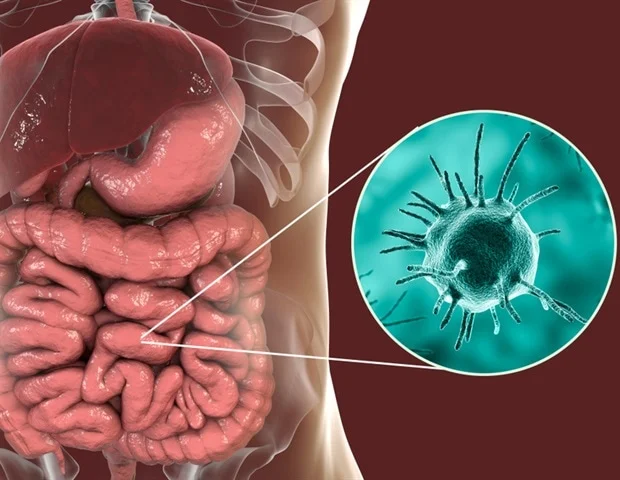Parasite infections are a global health concern, affecting millions of people every year. They can range from mild intestinal disturbances to serious systemic infections, particularly in tropical and subtropical regions. Ivermectin 6 mg tablet dose is one of the most widely used medications for treating a variety of parasitic infections. This article will provide a comprehensive guide to Ivermectin, including its uses, how it works, dosage, side effects, precautions, and frequently asked questions.
What Is Ivermectin?
Ivermectin is an antiparasitic medication that belongs to the class of drugs known as macrocyclic lactones. Originally derived from the bacterium Streptomyces avermitilis, it is effective against a broad spectrum of parasites. Its primary applications include treating intestinal worms, scabies, lice, and filarial infections, among others.
Developed in the late 20th century, Ivermectin has become a cornerstone in the global fight against parasitic diseases, particularly in low-income regions where such infections are prevalent. Its effectiveness, ease of administration, and relatively low side-effect profile have made it a preferred option for both individual treatment and mass drug administration campaigns.
How Ivermectin Works
Ivermectin works by paralyzing and killing parasites. Its mechanism of action involves:
Targeting Nerve and Muscle Cells: Ivermectin binds to specific chloride channels in the nerve and muscle cells of parasites, increasing permeability to chloride ions.
Paralysis and Death: This hyperpolarizes the cells, leading to paralysis and death of the parasite.
Selective Action: Ivermectin selectively targets parasites, leaving human cells largely unaffected, which makes it safe for clinical use when taken at recommended doses.
This mechanism is effective against a variety of parasites, including:
Roundworms (Strongyloides stercoralis)
Threadworms (Onchocerca volvulus)
Head lice and scabies mites
Certain intestinal protozoa
Common Uses of Ivermectin
1. Intestinal Worm Infections
Ivermectin is commonly prescribed for treating intestinal parasitic infections, such as strongyloidiasis and ascariasis. These infections can cause symptoms like diarrhea, abdominal pain, fatigue, and malnutrition if left untreated.
2. Scabies and Lice
Topical and oral Ivermectin are effective against scabies mites and head lice, providing relief from itching and irritation. Oral administration is particularly useful for severe or widespread infestations.
3. Filariasis and Onchocerciasis
Ivermectin is a key drug in the control and elimination of filarial infections, such as river blindness (onchocerciasis) and lymphatic filariasis. It helps reduce microfilariae in the bloodstream, preventing transmission by insect vectors.
4. Other Uses
Certain veterinary applications
Investigational use in some viral infections (though not universally recommended)
Dosage and Administration
The dosage of Ivermectin depends on the type of infection, patient weight, age, and overall health.
1. For Intestinal Worms
Adults: Typically 150–200 mcg per kilogram of body weight, given as a single dose.
Children: Dose adjusted according to body weight, often in tablet or liquid form.
2. For Scabies
Single oral dose may be repeated after 1–2 weeks for severe cases.
Topical Ivermectin (cream) can also be used for localized infections.
3. For Filariasis
Usually given as part of mass drug administration programs, often once yearly or in combination with other medications like albendazole.
Important tips:
Take Ivermectin on an empty stomach with water for better absorption.
Follow the exact dosage prescribed by your healthcare provider.
Avoid self-medicating, especially in children, elderly, or people with chronic conditions.
Side Effects of Ivermectin
Ivermectin is generally well-tolerated, but side effects may occur, particularly with higher doses or in people with heavy parasitic loads.
Common Side Effects
Nausea or vomiting
Diarrhea
Dizziness
Mild skin rash
Fatigue or headache
Rare but Serious Side Effects
Severe allergic reactions (swelling of face, lips, or throat)
Low blood pressure or rapid heartbeat
Confusion or neurological symptoms
Most side effects are temporary and resolve on their own, but medical attention should be sought if severe symptoms appear.
Precautions
Before taking Ivermectin, it is important to consider the following precautions:
Allergies: Avoid if you are allergic to Ivermectin or similar medications.
Pregnancy and Breastfeeding: Consult a doctor; safety may vary depending on trimester.
Liver or Kidney Problems: Dose adjustments may be necessary.
Other Medications: Inform your doctor about all drugs you are taking, especially those affecting the liver or immune system.
Ivermectin and Resistance
While Ivermectin remains highly effective, overuse or misuse can lead to reduced efficacy and potential drug resistance in parasites. Following prescribed dosages, completing treatment courses, and avoiding unnecessary use are essential to preserve its effectiveness.
Lifestyle and Environmental Considerations
In addition to medication, prevention of parasite infections includes:
Maintaining good hygiene (regular handwashing)
Drinking clean and safe water
Cooking food thoroughly
Avoiding contact with contaminated soil or water
Regular check-ups in areas where parasites are common
These steps complement Ivermectin treatment and reduce the risk of reinfection.
Myths and Facts About Ivermectin
Myth: Ivermectin cures all infections instantly.
Fact: It targets specific parasites and works best when combined with proper hygiene and supportive care.
Myth: Ivermectin can be taken in unlimited doses.
Fact: Overuse can lead to side effects and resistance; always follow medical advice.
Myth: Ivermectin is only for intestinal worms.
Fact: It is effective for a range of parasitic infections, including scabies, lice, and filariasis.
Ivermectin is a powerful and versatile antiparasitic medication that has transformed the treatment and prevention of many parasitic infections. Its ability to target a broad spectrum of parasites, combined with its safety profile, makes it a cornerstone in both individual treatment and public health initiatives.
However, proper use is crucial. Understanding dosage, administration, side effects, and precautions ensures maximum effectiveness and minimizes risks. Coupled with hygiene practices and environmental awareness, Ivermectin can significantly reduce the burden of parasitic diseases worldwide.
By following medical guidance and maintaining preventive habits, individuals can achieve effective parasite control, protect their health, and contribute to the broader effort to reduce parasitic infections globally.















Leave a comment